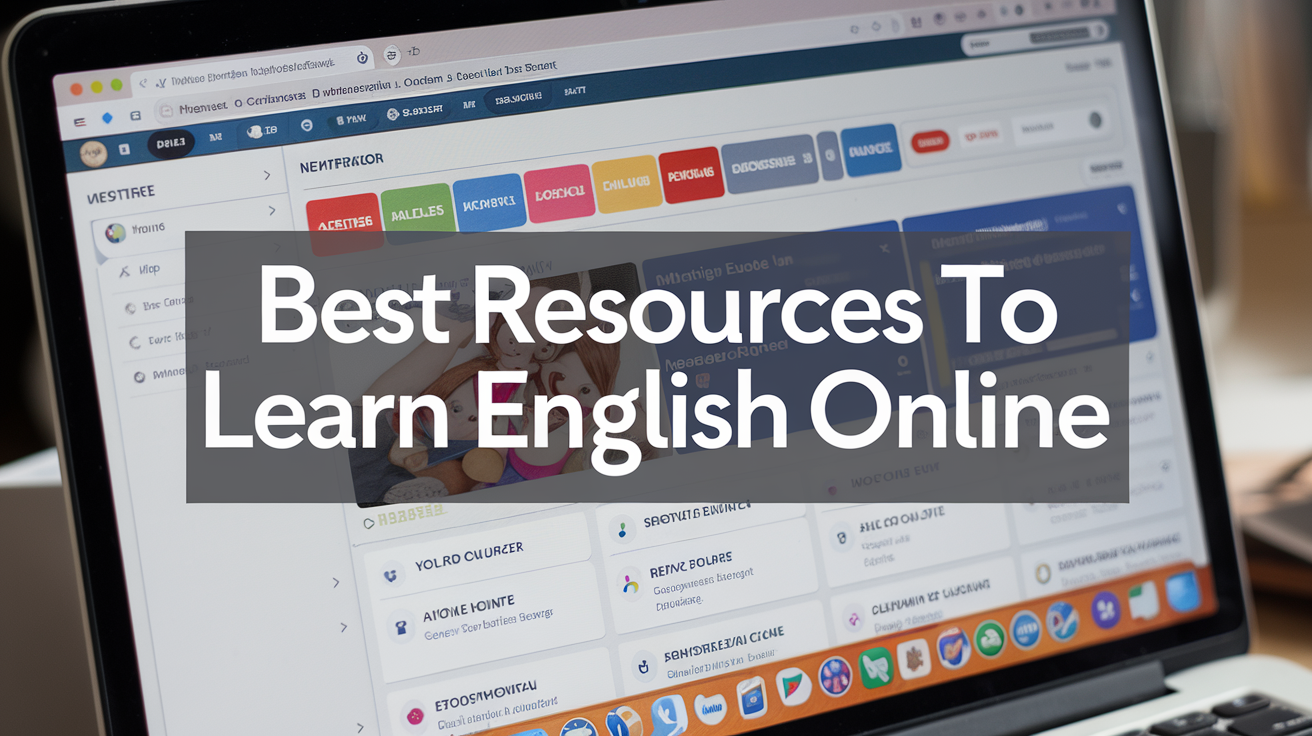Learning English has never been easier, thanks to the plethora of online resources available today. Whether you are a beginner or looking to polish your advanced skills, there are tools and platforms designed to cater to every learner’s needs. Here’s an updated list of the best resources for learning English online in 2024:
1. Language Learning Apps
-
Duolingo: Known for its gamified approach, Duolingo makes learning English fun and interactive. Its bite-sized lessons are perfect for learners at all levels.
-
Babbel: Focused on practical conversations, Babbel helps learners build vocabulary and grammar in context. Its lessons are short and easily fit into busy schedules.
-
Busuu: Offers personalized lessons and the chance to practice with native speakers. The feedback feature helps improve speaking and writing skills.
2. Online Courses and Platforms
-
Coursera: Partnering with top universities, Coursera provides English courses for academic, professional, and everyday communication.
-
edX: Offers courses from institutions like Harvard and the British Council, covering English for business, travel, and general use.
-
BBC Learning English: A free resource offering structured lessons, grammar tips, and pronunciation guides.
3. YouTube Channels
-
English Addict with Mr. Steve: Learn English with humor and practical lessons on grammar, vocabulary, and pronunciation.
-
BBC Learning English: Offers videos on various topics like idioms, grammar, and pronunciation.
-
English with Lucy: Focuses on advanced vocabulary, pronunciation, and accent training.
4. Interactive Websites
-
British Council Learn English: Provides free resources, including grammar exercises, vocabulary games, and listening practice.
-
Elllo.org: A rich library of audio and video lessons featuring native and non-native speakers to enhance listening comprehension.
-
FluentU: Uses real-world videos like movie trailers and news clips to teach English in context.
5. Virtual Tutors and Language Exchange
-
Italki: Connects learners with professional teachers and community tutors for one-on-one lessons tailored to individual needs.
-
Preply: Offers customizable lessons with tutors from around the world. The platform focuses on conversational practice.
-
HelloTalk: A language exchange app where you can practice English with native speakers while helping them learn your language.
6. Podcasts for English Learners
-
The English We Speak: A short podcast by the BBC covering everyday phrases and idioms.
-
ESLPod: Features slow and clear English conversations with explanations on vocabulary and usage.
-
All Ears English: Focuses on conversational English and cultural insights for intermediate and advanced learners.
7. Online Communities and Forums
-
Reddit: r/EnglishLearning: Join discussions, ask questions, and find resources shared by other learners and teachers.
-
Language Exchange Platforms: Websites like Tandem and Speaky allow you to practice English with learners and native speakers worldwide.
8. Vocabulary Builders and Flashcards
-
Quizlet: Create and use flashcards to memorize vocabulary and phrases. Interactive games make learning enjoyable.
-
Memrise: Uses spaced repetition and visual mnemonics to help learners retain new vocabulary effectively.
9. Grammar and Writing Tools
-
Grammarly: A must-have tool for writing in English, Grammarly checks grammar, punctuation, and style in real time.
-
ProWritingAid: Offers in-depth feedback on grammar, style, and clarity, ideal for advanced learners and writers.
-
Hemingway Editor: Simplifies complex sentences and improves readability.
10. Immersive Tools
-
Netflix and Subtitles: Watch movies and series with subtitles to improve listening and vocabulary in context.
-
LingQ: Offers an immersive learning experience by turning real-world texts and audio into interactive lessons.
Tips for Choosing the Right Resource
-
Set Clear Goals: Identify whether you want to improve speaking, writing, listening, or a combination.
-
Experiment: Try a few resources to find what works best for your learning style.
-
Stay Consistent: Dedicate regular time to practice and use multiple resources to diversify your learning.

